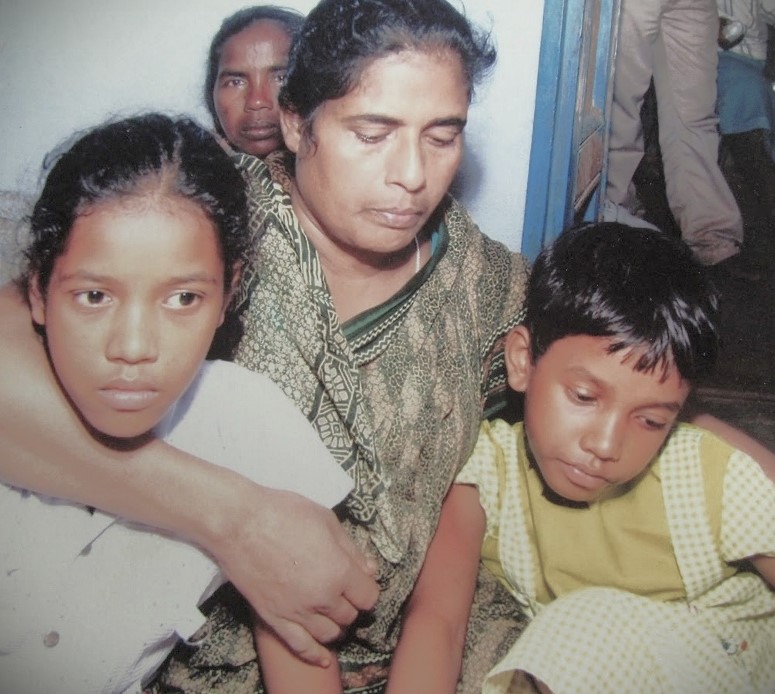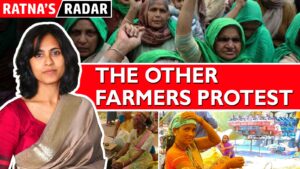
 COLUMN/ CULTURE DIARIES
COLUMN/ CULTURE DIARIES
Vidyarthy Chatterjee
It has long been said that the best way to know a person is to know the company they keep. The reasons for the persecution and death of activist Stan Swamy can be better understood in relation to his comradeship with Valsa John, the Malayali activist-nun murdered in 2011 in Pachwara village in Jharkhand’s Pakur district.
On November 15, 2011, 53-year-old Valsa was hacked to death by a mob in the tribal village she had made her home. Working with the indigenous people for many years, she had become a force to reckon with. A devoted group of followers was at the tribal rights activist’s her beck and call at any hour of the day or night.
Politicians, policemen, officials, and mining corporates were wary of her. Some of them found it difficult to pursue their activities since the formidable activist loomed larger than life on the horizon.
Simon Marandi, a Jharkhand legislator, once said, “Sister Valsa was very strong. I could not get into the area. She was running a parallel government.” Marandi’s complaint had everything to do with Valsa’s success in organising the villagers against the local Panem Coal Mines Limited, which was jointly promoted by the Punjab State Electricity Board and Kolkata’s EMTA group of companies.
The anti-mining movement she initiated in 2002 led to an agreement with Panem in 2006 that allowed the company to mine in the area in return for several benefits for the villagers. Many inhabitants of Pachwara, where Valsa was killed, say that at the time of her murder, she was preparing for fresh confrontations for what she saw as the mining company’s failure to fully abide by the terms of the agreement.
The mining company has denied any involvement in Valsa’s murder. Although there have been suspicions to the contrary, there has been no concrete evidence pointing to the company’s involvement in the tragic episode. On October 17, 2015, 16 accused in the Catholic activist’s murder were given life term and penalty of Rs 10,000 each by a Pakur court.
An Indian news outlet reported that in October 2014, a Maoist group member surrendered himself and told the cops that Valsa was killed by Maoists.
In early 2012, an American news outlet carried a serialised investigation into the life, work, and murder of Valsa. It took up her story because, to quote its editors, “Her life, and events leading up to her death, appeared to us to touch on many of the big issues that India is facing as it develops rapidly – industrialisation, preservation of the traditional ways of life, the Maoist rebellion that is present across several central Indian states, and the relationship between companies and indigenous tribes.”
This so-called rapid development of India may have benefited a certain class of Indians living in the big cities and enjoying a life of leisure. But the fruits of the economic growth and prosperity that every ruling political party over the past several decades have proclaimed at the drop of a hat have not only bypassed large parts of rural India and the lower classes in the towns and cities, but have also been possible because of the ceaseless exploitation of tribal people and other disadvantaged communities.
In a very real sense, Valsa signed her own death warrant when she, making common cause with the tribals, plunged into the strife.
Almost 12 years after her murder, expressions such as ‘crusader’ or ‘friend of the poor and the oppressed’ are still being showered on her by many. However, with the passing of time, following the inevitable laws governing public memory, the number of people using such expressions to describe the slain fighter is likely to become less and less.
The court cases against the accused may ultimately crumble for “want of evidence” – a dreadful piece of legalese that has come to the rescue of countless offenders.
However, at the end of the day, resistance to oppression in some form or the other can never be snuffed out. Whether it is the state, big capital, or corporate media, the oppressor will always be opposed. How else to explain for the birth of the Mexican admonition that one can be sure to find in every spoken and unspoken language on Earth? – “They buried us. They did not know we were the seeds.”
In fact, it is with these words imprinted on the screen that Ranchi-based artists-cum-activists Biju Toppo and Meghnath begin their documentary on Valsa. The film, Hum Aapke Saath Hain Saathi – presented in Santhali, Hindi, and English – gives the viewer an idea of the tough conditions in which adivasis live and the visionary manner in which their leaders led or lead them. In the film, we hear Swamy recalling the example of Valsa and telling us that when we are sure of our beliefs, we need fear no one.
(Vidyarthy Chatterjee is an eminent film critic and veteran columnist. He writes on socio-economic and socio-political issues, movies, books, art and culture.)
The column reflects the author’s opinions and not necessarily those of Empire Diaries.
REPUBLISHING TERMS:
All rights to this content are reserved. If you want to republish this content in any form, in part or in full, please contact us at writetoempirediaries@gmail.com.












